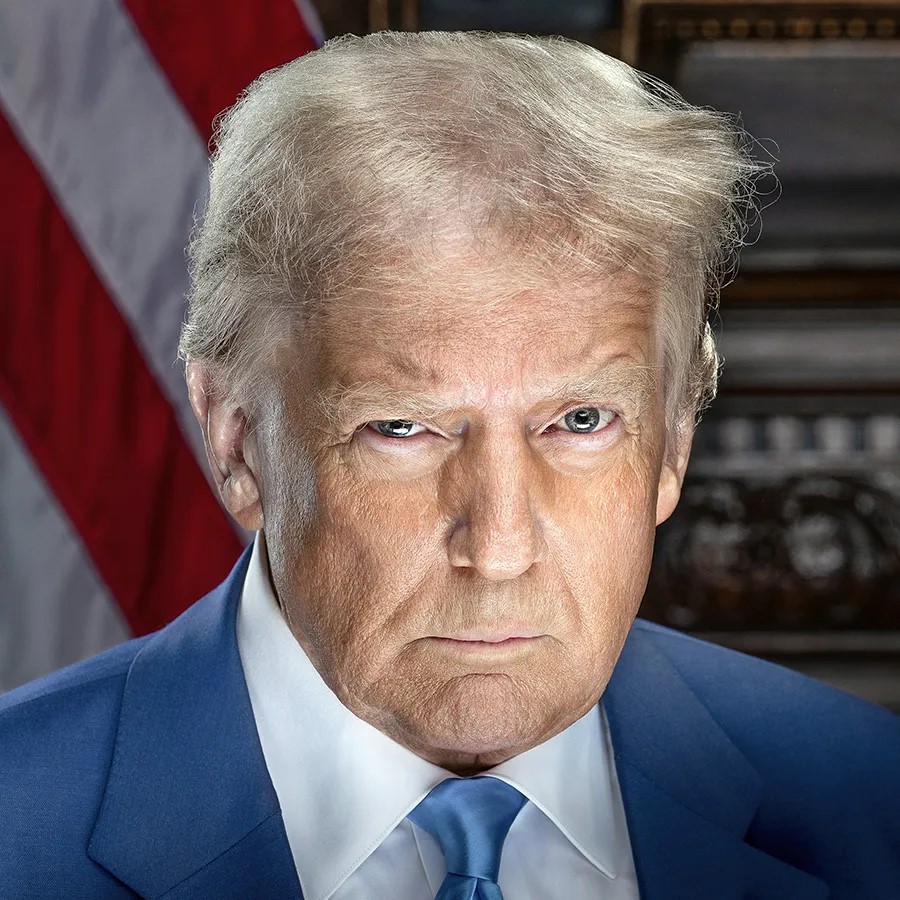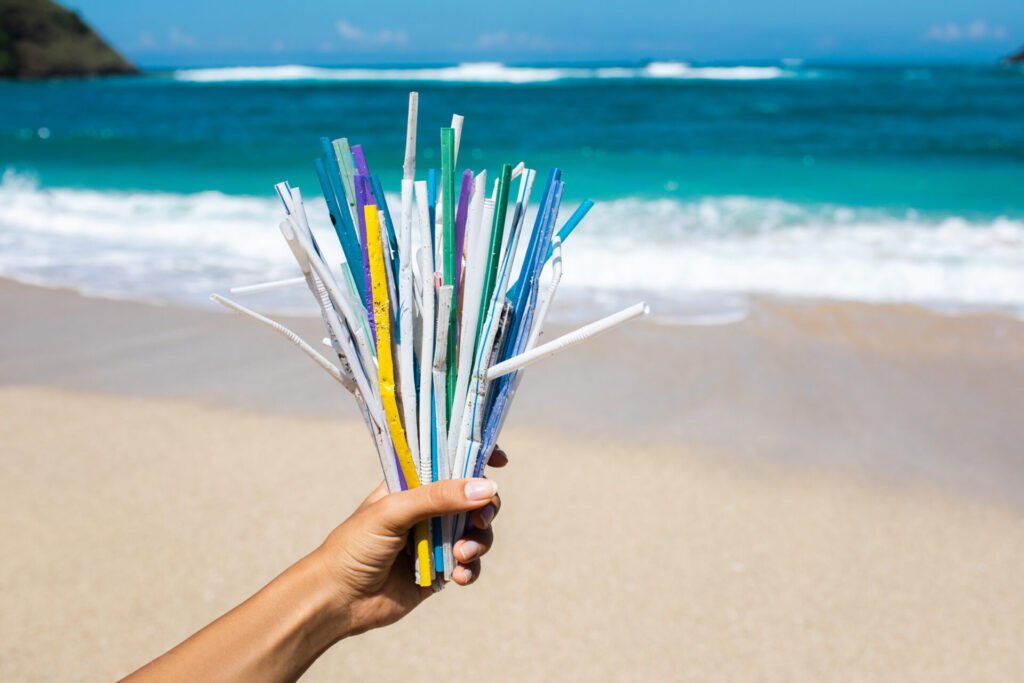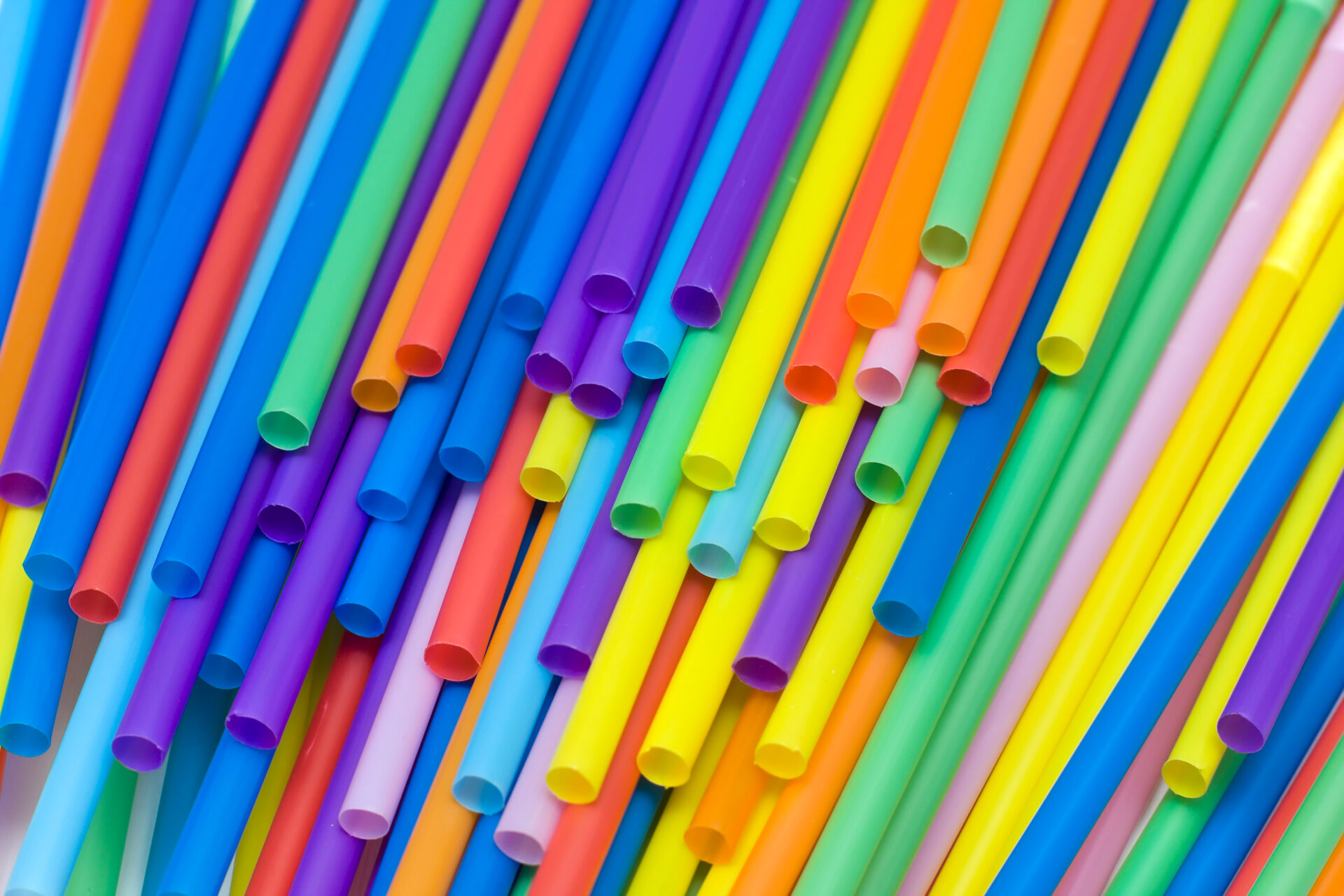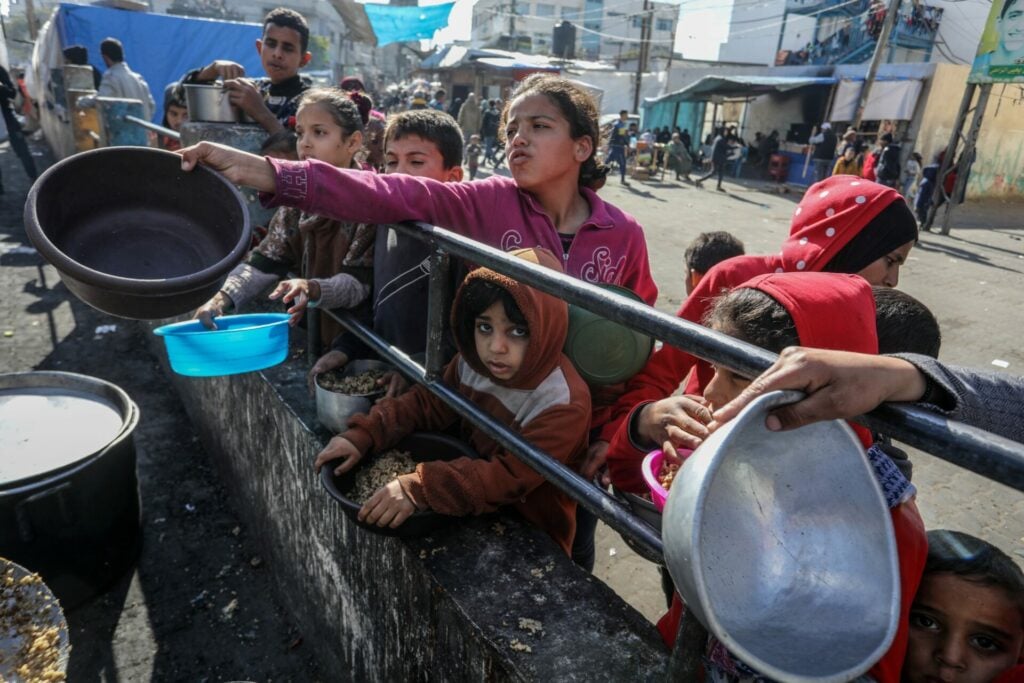As much of the world seeks to cut down on plastic consumption US President Donald Trump is banning use of paper straws by government agencies.
He claimed they do not work and don’t last very long and he wants the government to exclusively move to plastic.
‘It’s a ridiculous situation. We’re going back to plastic straws,’ Trump said as he signed an Executive Order to reverse federal purchasing policies that encourage paper straws and restrict plastic ones.
The move by Trump — who has long railed against paper straws, and whose 2019 re-election campaign sold Trump-branded reusable plastic straws for $15 per pack of 10 — targets a Biden administration policy to phase out federal purchases of single-use plastics, including straws, from food service operations, events and packaging by 2027, and from all federal operations by 2035.

While plastic straws have been blamed for polluting oceans and harming marine life, Trump said Monday that he thinks ‘it’s OK’ to continue using them.
‘I don’t think that plastic is going to affect the shark very much as they’re eating, as they’re munching their way through the ocean,’ he said at a White House announcement.
Several US states and cities have banned plastic straws, and some restaurants no longer automatically give them to customers.
Straws = Microplastics
Around the world, the equivalent of one garbage truck of plastic enters the ocean every minute from a range of sources, including plastic bags, toothbrushes, bottles, food packaging and more, experts say.
As those materials break down in the environment, microplastics are turning up in the stomachs of fish, birds and other animals, as well as in human blood and tissue.
More than 90 per cent of plastic products are derived from fossil fuels such as oil and natural gas, and millions of tons of plastic waste enter the world’s oceans every year.
‘President Trump is moving in the wrong direction on single-use plastics. The world is facing a plastic pollution crisis, and we can no longer ignore one of the biggest environmental threats facing our oceans and our planet today.’
Christy Leavitt, plastics campaign director for the environmental group Oceana,
Many multinational companies have moved away from plastic straws and have made reducing plastic use across their operations central to their sustainability goals, making Trump’s decision an anomaly in the business world.
Trump’s order is ‘more about messaging than finding solutions,’ said Christy Leavitt, plastics campaign director for the environmental group Oceana, noting that most US voters support requiring companies to reduce single-use plastic packaging.

‘President Trump is moving in the wrong direction on single-use plastics,’ Leavitt said. ‘The world is facing a plastic pollution crisis, and we can no longer ignore one of the biggest environmental threats facing our oceans and our planet today.’
More than 390 million straws are used every day in the United States, mostly for 30 minutes or less, according to advocacy group Straws Turtle Island Restoration Network and every year, the world produces more than 400 million tons of new plastic.
Straws take at least 200 years to decompose and pose a threat to turtles and other wildlife as they degrade into microplastics, the group says.
‘To prevent another sea turtle from becoming a victim to plastic, we must make personal lifestyle alterations to fight for these species,’ the group said in a statement.
Globally, nations are creating a treaty to address plastic pollution and world leaders met for a week in South Korea late last year but didn’t reach an agreement.
Talks are set to resume this year as more than 100 countries pursue a pact that limits plastic production as well as tackles cleanup and recycling.









